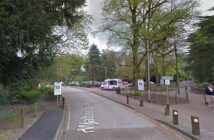SENIOR drivers are wanted in the Warrington area to test road safety technology.
Five hundred drivers over the age of 65 are needed to take part in a new voluntary research project designed to help elderly drivers stay on the road safely for longer.
Space-tech start-up company, Satsafe, based at Sci Tech Daresbury, near Warrington, has developed a unique driver monitoring system that can detect unusual changes in an individual’s driving patterns that could indicate, for example, deterioration in eyesight or reaction times.
Combining black box technology and dash cameras with big data analytics, Satsafe’s “Telematicam” is a “plug and play” innovation that provides safety and security benefit to users and their families.
It can also be used to protect a driver who had been driving safely when an accident has taken place, providing back-up that they weren’t speeding or driving erratically at the time, and alert family and the emergency services that an incident has occurred and where.
DVLA figures show that more than 4.5 million of the 39 million people holding driving licences in the UK are aged over 70. And the number of drivers aged over 90 has topped 100,000 for the first time.
In an ageing population, driving is an important part of life for a growing number of elderly drivers, providing freedom and independence, and research shows that giving up driving can increase depression and isolation.
However, driving can also involve a certain amount of risk and often anxiety, both for the elderly driver who might be questioning their ability to drive, and for family who might be worried about them.
Tiny ultra-sensitive sensors built in to the Telematicam form an accurate picture of how safely a car is being driven by an individual, gathering information on acceleration, braking and cornering forces as well harsh braking events at junctions which can be an early indicator of failing eyesight.
A notification can be sent to family members if their relative is encountering difficulties that are potentially putting themselves and others at risk, or in worse cases, has been involved in an accident.
Satsafe chief executive officer Stuart Millward said: “Maintaining our independence and mobility for as long as possible is important to so many of us, but safety can be a concern for all involved. We are really looking forward to working with our volunteers, to trial our technology and help us develop additional features that will provide real benefit and peace of mind to themselves and family members. Ultimately we want to enable people to stay mobile for as long as possible, while it is safe for them to do so.”
“The key here is early intervention – notifying families when a parent’s driving habits have changed, which may just indicate that an eye test is needed, could save lives, but can also provide reassurance if there is concern about the onset of dementia, which could impair driving ability.”
Professor Susan Smith, head of STFC’s Daresbury Laboratory, said: “In its recently announced Industrial Strategy White Paper, the Government reconfirmed its commitment to harnessing the power of innovation to help meet the needs of an ageing society, and to help our older citizens
lead independent fulfilled lives. I can’t think of a more fitting example of this than what Satsafe is doing right now, and I’m thrilled that they are doing it right here at Sci-Tech Daresbury.”
city’ project in Manchester working closely with Manchester City Council, Transport for Greater Manchester and technology giants including Cisco, BT and Ordnance Survey. The aim of CityVerve is to demonstrate the societal, commercial and environmental benefits of Internet of Things applications within a city, to improve its services in everything from healthcare and law enforcement, to traffic control and air quality, creating a smarter, safer city to enhance the quality of life for its residents.
Motorists aged 65 or over who would like to volunteer to take part in the trial should contact Satsafe by emailing [email protected]
Senior drivers wanted to test road safety technology
11 Comments
Share.





1 Comment
It sounds a great idea.
I can’t help wondering though what would happen if the equipment showed the person is a danger to both themselves and other road users. Would their insurance company be automatically informed etc or is it up to the person themselves (or their family) to make the actual decision that they perhaps should not be driving anymore
What if the elderly person does not want to give up driving even though the equipment shows they are a danger. Could a family member force them into stopping driving against their will ? What are the legalities ?.